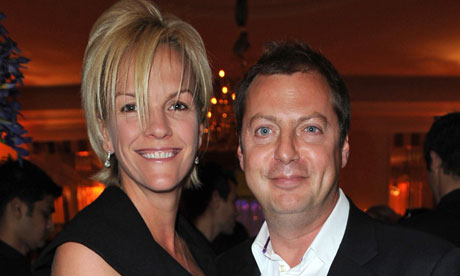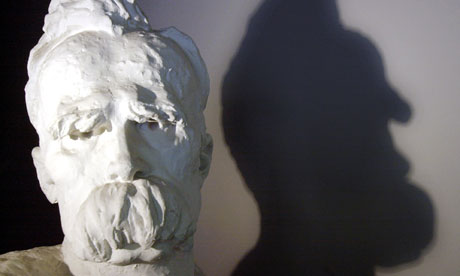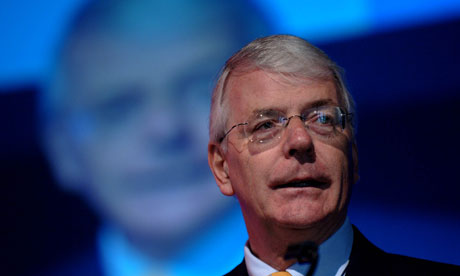8:11PM BST 20 Jul 2011
Halfway through my time as his political secretary, Tony Blair offered me some excellent advice: “You only have to break one of their legs, John.” In vain did I protest that I had never broken a single leg, let alone both. The point Blair was making was that political operatives need to be either feared or respected.
The truth, exposed horrendously over the past fortnight, is that David Cameron’s current operation in Downing Street is neither.
The issue here is not that Ed Miliband has made the political weather – though he has. It is that the Government’s response has been supine. In a crisis, what is required from the centre is “grip”: a tightly controlled and clearly visible strategy that reframes the problem and creates the political space for you to move on. None of that has been apparent.
What should Downing Street have done? Well, the first rule of crisis management is that you need to understand the full dimensions of the problem. That means assembling all the facts: getting everyone together, collecting all the data, making sure that you know exactly what happened and when. Above all, it requires you to ask all the questions that you know will be put to you, especially the ones that you fear the most. This has clearly not been done.
Speaking in the House of Commons yesterday, the Prime Minister could not say whether Neil Wallis, the former News of the World executive who apparently acted as an informal adviser to Andy Coulson before the election, had been into Downing Street to see Coulson after it.
Well, someone in the Garden Room – the home of the elite administrators who keep the Government ticking over – could have checked the diary.
More basically, everyone who comes into No 10 has an entry on a database that the police check at the gate. A simple search would have sufficed to provide the PM with an answer. And that was just one small fact. What was needed was a far more searching process that pulled together every angle, and every possible line of attack.
This was not because full, frank and fearless disclosure was required, but because a choice had to be made. Just as you get only one chance to make a first impression, in a scandal you get only one chance to make a clean breast of things.
The key, though, is to realise that you don’t need to tell the whole truth – just nothing but the truth. Don’t lie. Don’t equivocate. But set out a defensible truth: one that you will not have to expand, modify or resile from.
In all crises, there is a similar pattern. Some information will initially be suppressed, but it will dribble out, or be dragged out. In any event, it won’t be kept secret, and when it emerges, you will end up looking shifty or malevolent. Full disclosure is important, but – speaking cynically – only of what will eventually come out.
Be economical if you are sure some sources are utterly secure. Just be honest about what will become public, and don’t try to conceal it. In any scandal, there are some things it is impossible to evade; your only chance of survival will be to endure them.
To date, there have been no signs that anyone in No 10 has grasped these laws. Paradoxically, the last Cameron staffer who got this, who could have predicted and anticipated the trajectory that the story would take, was Andy Coulson.
With Coulson gone, there has been no trace of the feral in the No 10 DNA – indeed, the new Downing Street prides itself on being a less political place than under Labour, and on operating with fewer special advisers.
What this fails to take into account is that politics is a contact sport. It’s not about “sofa government”: it’s about effective government. No one would have called Jonathan Powell, Tony Blair’s consigliere, “feral”, but he always had someone who could do the business as part of his team: tough, respected operators such as Alastair Campbell, Sally Morgan, Pat McFadden or Darren Murphy.
Who fits the bill in the current set-up? Search me. Indeed, search the house, and the surrounding buildings. No one can do the necessary low politics. For example, Ed Llewellyn, the current chief of staff, is as decent a man as I have dealt with in politics.
He understands that his role is, in part, to shield the Prime Minister from trouble. But in apparently failing to pass on warnings about Andy Coulson, he neglected his duty to put the difficult questions to the boss, even if they were rejected.
The entire civil service machine is paid to say yes to the PM, but his staff – particularly the most senior – are paid to say no. It is fine for him to press ahead with his chosen strategy, but he should have the alternatives, and the costs and benefits, laid out.
The greatest asset of the Cameron operation is the Prime Minister himself. His performance in the Commons yesterday, for example, was typically polished. No one can match his sweeping mastery of the Chamber, or his contemptuous dismissal of objectionable questions. It was a classic of its kind: hours on his feet, answering endless questions, super-cool, witty, calm.
And yet the flaws were revealing. First, it was all his own work. We were back to Cameron in his pomp, the greatest single explicator of the Government’s policies, actions and strategies.
It’s a huge gift, and the Coalition would sink without it. But it emphasised once more that this is what he is – the only one who can make that compelling case. And second, it was a Commons performance on an issue that has broken through to the streets.
Earlier this week, my partner realised that the two women walking behind her on a suburban street were discussing the quality and veracity of News International’s evidence to the select committee. This has become an issue where the public know (and care) enough to become expert.
This is where the flaws in No 10’s strategy – or lack of it – will rebound on the PM. At certain key moments yesterday, he showed a fatal lack of detail, or recall. Why was there no ready response to Tom Watson’s question about his letter to Cameron, which contained warnings about Coulson that went ignored? The PM and his team can’t have imagined that Watson would be absent, or that the Speaker would overlook him.
And why so evasive on the private firm that “vetted” Coulson – is the name really going to stay secret? After all, it would have received government money, and elsewhere ministers boast of total transparency in costs and supply of services.
All governments need head-kickers: in their Cabinets, on their backbenches, and in their offices. It has been a stunning miscalculation not to have a proper political operation in No 10 – and arguably, yet another way that the Coalition has deeply damaged the Tory party. Worse, it has deprived Cameron of a key instrument of government: effective enforcement.
For want of a strategy, Cameron is now tied to Coulson: if the latter is shown to have lied – indeed, if he is convicted of perjury – it is unlikely that a prime ministerial apology to the Commons will be sufficient penance. Sir John Junor used to ask, in his own inimitable way: “Who is in charge of the clattering train?” Well, who is?
More basically, everyone who comes into No 10 has an entry on a database that the police check at the gate. A simple search would have sufficed to provide the PM with an answer. And that was just one small fact. What was needed was a far more searching process that pulled together every angle, and every possible line of attack.
This was not because full, frank and fearless disclosure was required, but because a choice had to be made. Just as you get only one chance to make a first impression, in a scandal you get only one chance to make a clean breast of things.
The key, though, is to realise that you don’t need to tell the whole truth – just nothing but the truth. Don’t lie. Don’t equivocate. But set out a defensible truth: one that you will not have to expand, modify or resile from.
In all crises, there is a similar pattern. Some information will initially be suppressed, but it will dribble out, or be dragged out. In any event, it won’t be kept secret, and when it emerges, you will end up looking shifty or malevolent. Full disclosure is important, but – speaking cynically – only of what will eventually come out.
Be economical if you are sure some sources are utterly secure. Just be honest about what will become public, and don’t try to conceal it. In any scandal, there are some things it is impossible to evade; your only chance of survival will be to endure them.
To date, there have been no signs that anyone in No 10 has grasped these laws. Paradoxically, the last Cameron staffer who got this, who could have predicted and anticipated the trajectory that the story would take, was Andy Coulson.
With Coulson gone, there has been no trace of the feral in the No 10 DNA – indeed, the new Downing Street prides itself on being a less political place than under Labour, and on operating with fewer special advisers.
What this fails to take into account is that politics is a contact sport. It’s not about “sofa government”: it’s about effective government. No one would have called Jonathan Powell, Tony Blair’s consigliere, “feral”, but he always had someone who could do the business as part of his team: tough, respected operators such as Alastair Campbell, Sally Morgan, Pat McFadden or Darren Murphy.
Who fits the bill in the current set-up? Search me. Indeed, search the house, and the surrounding buildings. No one can do the necessary low politics. For example, Ed Llewellyn, the current chief of staff, is as decent a man as I have dealt with in politics.
He understands that his role is, in part, to shield the Prime Minister from trouble. But in apparently failing to pass on warnings about Andy Coulson, he neglected his duty to put the difficult questions to the boss, even if they were rejected.
The entire civil service machine is paid to say yes to the PM, but his staff – particularly the most senior – are paid to say no. It is fine for him to press ahead with his chosen strategy, but he should have the alternatives, and the costs and benefits, laid out.
The greatest asset of the Cameron operation is the Prime Minister himself. His performance in the Commons yesterday, for example, was typically polished. No one can match his sweeping mastery of the Chamber, or his contemptuous dismissal of objectionable questions. It was a classic of its kind: hours on his feet, answering endless questions, super-cool, witty, calm.
And yet the flaws were revealing. First, it was all his own work. We were back to Cameron in his pomp, the greatest single explicator of the Government’s policies, actions and strategies.
It’s a huge gift, and the Coalition would sink without it. But it emphasised once more that this is what he is – the only one who can make that compelling case. And second, it was a Commons performance on an issue that has broken through to the streets.
Earlier this week, my partner realised that the two women walking behind her on a suburban street were discussing the quality and veracity of News International’s evidence to the select committee. This has become an issue where the public know (and care) enough to become expert.
This is where the flaws in No 10’s strategy – or lack of it – will rebound on the PM. At certain key moments yesterday, he showed a fatal lack of detail, or recall. Why was there no ready response to Tom Watson’s question about his letter to Cameron, which contained warnings about Coulson that went ignored? The PM and his team can’t have imagined that Watson would be absent, or that the Speaker would overlook him.
And why so evasive on the private firm that “vetted” Coulson – is the name really going to stay secret? After all, it would have received government money, and elsewhere ministers boast of total transparency in costs and supply of services.
All governments need head-kickers: in their Cabinets, on their backbenches, and in their offices. It has been a stunning miscalculation not to have a proper political operation in No 10 – and arguably, yet another way that the Coalition has deeply damaged the Tory party. Worse, it has deprived Cameron of a key instrument of government: effective enforcement.
For want of a strategy, Cameron is now tied to Coulson: if the latter is shown to have lied – indeed, if he is convicted of perjury – it is unlikely that a prime ministerial apology to the Commons will be sufficient penance. Sir John Junor used to ask, in his own inimitable way: “Who is in charge of the clattering train?” Well, who is?




